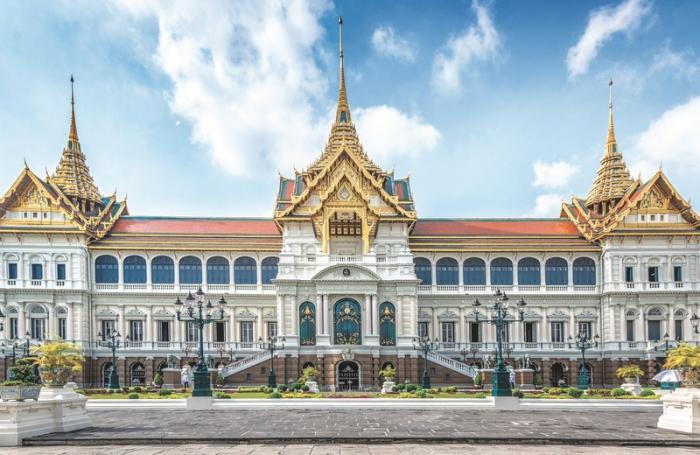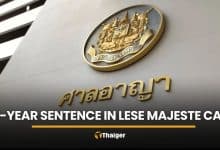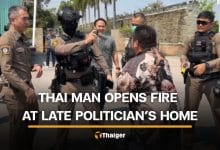Looking Back: Two brothers contend for the throne

PHUKET: In the year 1851, when King Rama III died, Siamese nobles, led by Chaophraya Srisuriyawongse, supported Prince Mongkut and invited him to leave the monkhood to claim the throne. It was during this period that Siamese politics took an unusual turn.
King Mongkut had a brother, Prince Chuthamani. When Mongkut became king, he elevated Prince Chuthamani to the rank of ‘Phrabat Somdej’, a title reserved only for a crowned king. Chuthamani became known as King Pinklao, a second king of Siam with a rank that equaled his brother’s.
King Mongkut reigned for 17 years. He had four children with his royal consort, Queen Debsirindra. The oldest was Prince Chulalongkorn, born on September 20, 1853.
The king had a special interest in science and astronomy since his early days as a Buddhist monk at Bowonnivet Temple. In 1868, he predicted that a solar eclipse would take place on August 18. During that time Siamese society was particularly superstitious. Solar eclipses were bad omens. But the king challenged that notion and proposed that solar and lunar eclipses, like many other natural occurrences, could be explained by science and astronomy.
On August 18, 1868, King Mongkut, Prince Chulalongkorn and a royal party of consorts, courtiers and European guests made their way to an observatory in Wakor village in Prachuap Khiri Khan province to witness the solar eclipse. True to his calculations, the eclipse did occur. The court was astounded.
On the way back to Bangkok, tragedy struck the royal household. The King and Prince Chulalongkorn were infected with malaria. Six weeks later, King Mongkut passed away in Bangkok. Prince Chulalongkorn, however, survived.
Chaophraya Srisuriyawonse, the most powerful noble during that time, was to become kingmaker for the second time in his life. Presiding over a council of nobles and princes, it was unanimously declared that 15-year-old Prince Chulalongkorn should succeed his father and become king. As the king was underage, Srisuriyawongse would serve as regent and administer the country for the next few years until the king came of age.
Things got a bit complicated here. King Pinklao was head of the front palace before he passed away. In Siamese royal tradition, a younger brother of the king could be bestowed the title of ‘Uparaja’, or vice-king. He would occupy the Front Palace but still be under the king’s command. But this was the first time in Siamese history that there were two kings, both of equal rank. The Front Palace therefore gained an unprecedented amount of power and prestige.
King Pinklao had a son, Prince Vichaichan. It was clear that Vichaichan was going to succeed his father as head of the Front Palace. But the council was divided on whether to appoint him as vice-king right away. Some of the princes suggested that appointing a vice-king was the king’s prerogative and that the decision could wait until the king came of age. But Chaophraya Srisuriyawongse wanted a stable transition. He argued that the appointment should be made straight away. Eventually Prince Vichaichan was appointed as head of the Front Palace, without King Chulalongkorn’s consent.
King Mongkut elevated Chuthamani to become a second king because he loved his brother. But the legacy of the second king would spell trouble for his son many years later. By this time the Front Palace had become much more powerful than it had ever been. The second king commanded his own army. He also controlled a naval force of several steam-powered gunboats and claims to a large share of state revenue.
In 1873, King Chulalongkorn turned 20 and was finally ready to administer the country. The regent, Chaophraya Srisuriyawongse stepped aside.
King Chulalongkorn was a reformist who wanted to modernize the country. In one of his first acts as king, he created the Auditing Office to simplify the collection of taxes. From the start his reforms were aimed at centralizing the administration of government. It did not sit well with the nobles and Prince Vichaichan, who saw Chulalongkorn’s reforms as a means to limit their power and boost his own.
Tension and mistrust grew between the king and the vice-king. In December of 1874, Vichaichan began mobilizing some of his troops and quartered them within his own palace. In response, King Chulalongkorn mobilized his own troops.
On the night of December 28, a fire broke out in the Grand Palace. The flames quickly spread, threatening to engulf the king’s residential quarters. In such a situation, custom dictated that the Front Palace head would have to lead his men to the king’s aid in times of danger. But Vichaichan never came. In the end the fire was put out.
The king suspected that the Front Palace might have had a role to play in this malice. He ordered his troops to surround the Front Palace in order to contain the situation. The two kings were on the edge of an all out civil war.
To be continued.
— Anand Singh
Latest Thailand News
Follow The Thaiger on Google News:


























